Classic Literature Is Getting The Whimsical Indie Treatment
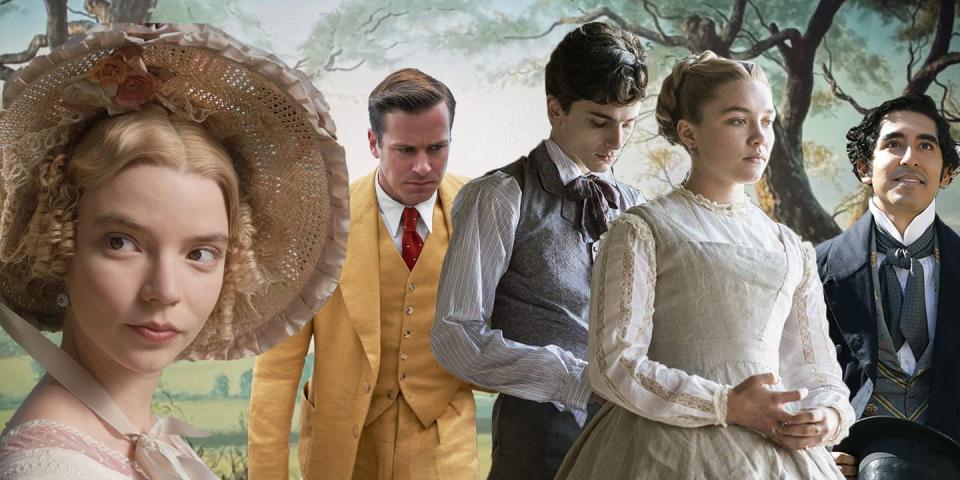
Can the temperature of a cultural moment be taken by assessing the heroes and villains of the time? If so, your teenage self might be horrified to see the dullards of your exams set texts – that Copperfield guy, Mr Elton and Emma Woodhouse, the many March sisters – are increasingly taking over cinema.
As indie movie director Ben Wheatley's adaptation of Rebecca lands on Netflix, it becomes the latest in a flurry of classic literature adaptations. The trend has seen David Copperfield get a whimsical remix courtesy of Armando Iannucci, while Autumn de Wilde's version of Emma turned Regency-era England into a sweetshop of sunshine yellows and blushing pinks.
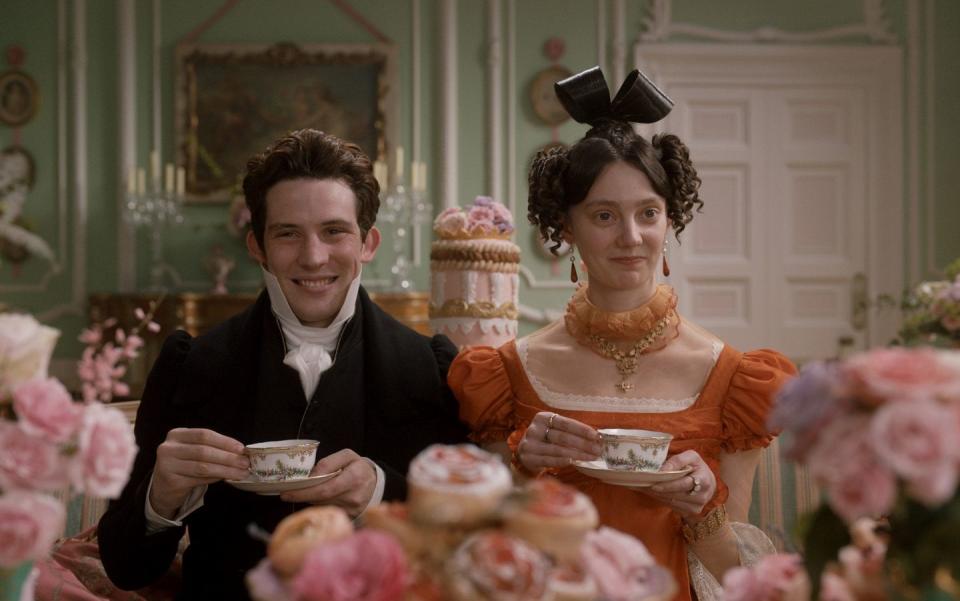
This latest slew of revamped classics has seen esteemed directors turning to the literature of the 19th and early 20th century in order to make them new, showing these social satires and classic tales still have some bite left. Still, it's worth wondering what inspired indie director Ben Wheatley – he of serial killer comedy Sightseers, and contract killer definitely-not-comedy Kill List –to take on Daphne du Maurier's Rebecca. Should we be expecting Barry Jenkins’s Catcher in the Rye next? Perhaps Ari Aster’s The Mysteries of Udolpho?
Sadly, Rebecca is a surprisingly charmless take on the arresting Gothic novel, using blue lighting and Lily James sighing to conjure a spooky vibe. It's a shame that little of Wheatley's filmography found it into his Rebecca, since their approach has more in common with du Maurier's writing than this flat take on the novel. Unfortunately, what results is a paper-thin ghost story which lacks the dramatic tension or lust which made the novel burn on the page.
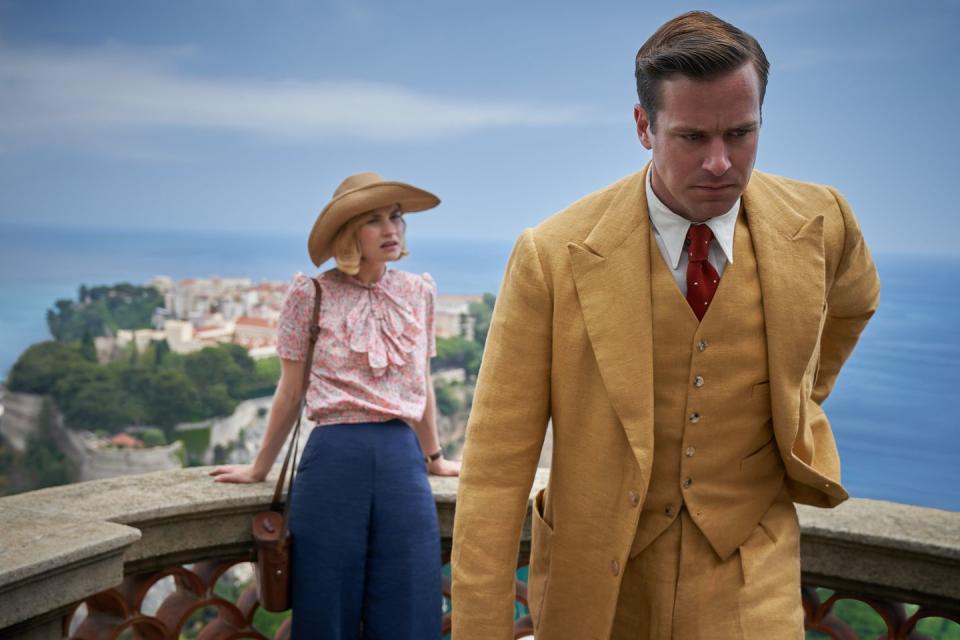
Unlike in Hitchcock's seminal 1940 adaptation of the novel, here Rebecca is given a feminist edge which is at odds with the passive character du Maurier wrote, around whom the story spirals. This inclination to square the morals of the book with the values of now is one of the problems of taking on classic literature, one that begs the question of how you present an era of dowries and women desperate to marry in the time of the #girlboss.
One adaptation which managed this brilliantly, and surely one that many of its successors will hope to echo, is Greta Gerwig's Little Women, a take on the Louisa May Alcott novel that has been adapted for film seven times since 1917. Gerwig's spin on the March sisters was a triumph commercially and critically, managing to engage in a conversation between modern audiences without having to put words into Alcott's mouth. Instead, she found in the text so many examples of the rage the characters felt at the "inappropriate emotions" coursing through them.
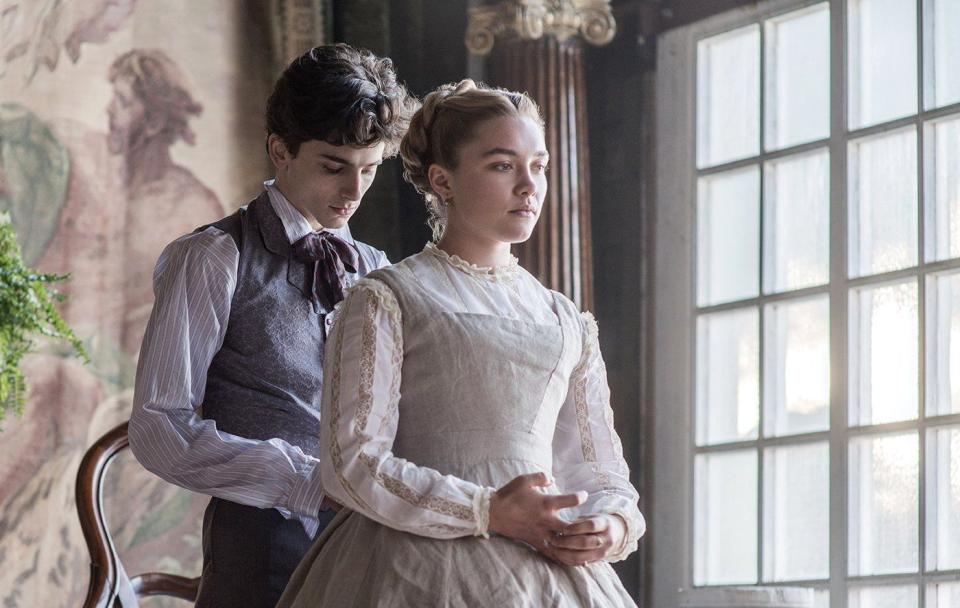
At a time where reboots and sequels are dominating the film landscape, Little Women was a golden goose in that it gave studios a story they already knew resonated with audiences and packaged it into a cosy Christmas watch that you wanted to experience in the cinema. Yet the film's real success is in digging into new facets of the story and bringing out the elements that had been covered over by history.
When Alcott published her novel, she was pushed to follow up the story by giving readers the happy ending of seeing Jo March married, a directive she part-dodged by marrying her off to Professor Friedrich Bhaer, instead of the obvious choice of Laurie. Gerwig has revealed that initially there was a grand rom-com ending to the film, a back-lit scene with a carriage pursuit in the rain and a dramatic kiss, but instead she decided to play it down. Her ending gives Alcott the one her publishers denied her, by focusing on the book as the happy ending, not the man, and giving the classic story the feminist credentials of a modern day indie film.
Since Little Women, directors Autumn de Wilde and Armando Iannucci have taken on the great works of Jane Austen and Charles Dickens respectively, giving them a modern spin while keeping the quaint costumes. They seem determinedly different from the soft romance of the classic Austen adaptations, in which Keira Knightley and Emma Thompson trudge around heaths in the grey rain. Here, colours burst from the screen as though filtered for Instagram, and a cast of veteran actors and comics bring a sense of theatricality and life to centuries-old stories. These films play on our nostalgia for the past while slyly reminding us of its drawbacks, showing us a world where death and poverty are never far from the door, and presenting an ugly picture of life for women underneath the pretty pink frills.

In de Wilde's Emma and Iannucci's The Personal History of David Copperfield, both directors are unafraid to poke fun at some of the more absurdist elements of these classic tales. These films succeed in part due to their willingness to investigate the source material's more infamous characters, making Emma priggish and cold, or, in Dev Patel's Copperfield, proving that the historic whiteness is up for debate.
During the Noughties there was a vogue for films set in American high schools, but which borrowed their plots from the books those students would have been studying. We got Get Over It (A Midsummer Night's Dream), She's The Man (Twelfth Night), Easy A (The Scarlett Letter), John Tucker Must Die (The Merry Wives of Windsor), 10 Things I Hate About You (The Taming of the Shrew) and Cruel Intentions (Les Liaisons Dangereuses). These followed the mould of the successful 1995 Emma revamp, Clueless, by largely disguising the literary roots of the story in a teen movie while leaning on classic scaffolding.
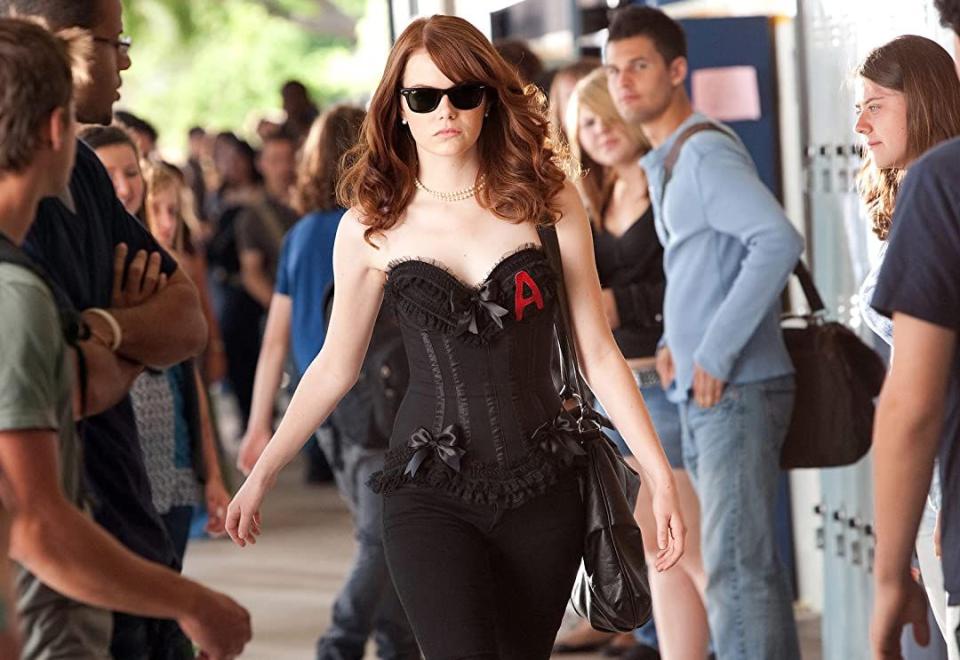
The greats, naturally, never really go out of fashion, and there has been a steady stream of literary adaptations, including The Secret Garden, Dracula and The Great Gatsby punctuating recent years. But there's something different about this latest batch of classic literature reboots, with the best results coming when directors interrogate their source material, rather than treat it with nothing but respect. David Copperfield and Little Women, especially, tug on the threads that might have been missed and spin them into something else entirely, instead of just dressing up the same story in shiny new clothes.
The trend might not last enough to give us Bong Joon Ho’s Hard Times– which, for the record, I'd pay good money to see – but the results show that there's plenty of mileage left in the dusty classics on your bookshelf.
Like this article? Sign up to our newsletter to get more articles like this delivered straight to your inbox
Need some positivity right now? Subscribe to Esquire now for a hit of style, fitness, culture and advice from the experts
You Might Also Like

 Yahoo News
Yahoo News 